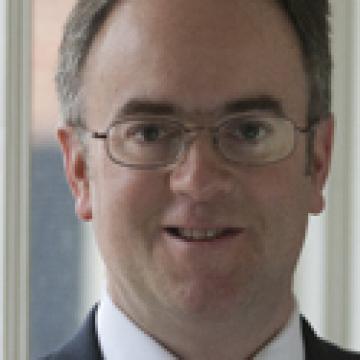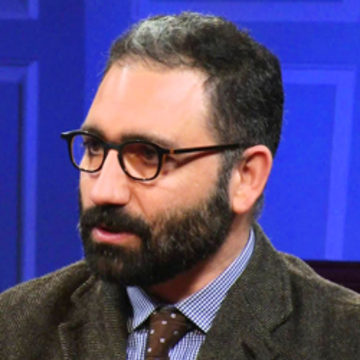American Forum
Aftermath of the Endless War
Confronting Political Islam
John Owen, Ahmed H. Al-Rahim
6:00AM - 7:30AM (EST)
Event Details
Television Broadcast: February 22, 2015
Part of a new American Forum special series in Spring 2015 The Aftermath of the Endless War
JOHN OWEN is Ambassador Henry J. and Mrs. Marion R. Taylor Professor of Politics, and a Faculty Fellow at the University of Virginia's Institute for Advanced Studies in Culture. His newest book is Confronting Political Islam: Six Lessons from the West’s Past (Princeton, 2014). He is author of The Clash of Ideas in World Politics: Transnational Networks, States, and Regime Change, 1510-2010. AHMED AL-RAHIM is an assistant professor of Islamic studies in U.Va.’s religious studies department. He studies and teaches medieval Islamic intellectual history, particularly the philosophical reception of Avicenna and classical Islamic ethical thought, as well as aspects of the ideological development of political Islam in the modern age. Al-Rahim’s publications include The Creation of Philosophical Tradition: Biography and the Reception of Avicenna's Philosophy from the Eleventh to the Fourteenth Century A.D.
SUMMARY
During the February 4 session, Confronting Political Islam, part of UVA Miller Center’s continuing American Forum series on “The Aftermath of Endless War,” UVA professor JOHN OWEN and UVA assistant professor AHMED AL-RAHIM analyzed the strong negative views across America regarding Islam, and attempted to explain Islam’s wide range of views and sects of beliefs and practices across the history of the faith. Comparisons to Christianity were made—the various Christian views and practices, over time and space, regarding beliefs and practices—some of which, themselves, were considered radical and violent. Some of the acts of violence today by some Muslims “. . . are not to be confused with the religion of Islam itself any more than some of the atrocities and wars of five hundred years ago in Europe should be confused with Catholicism or Calvinism or Lutheranism,” Owen explained.
Owen explained that what’s happening in the Muslim world is an ideological conflict, and that military reaction may only exacerbate such radical ideology. Sometimes we need to “wait it out; it will self-destruct.”
Some have differentiated Islam from Political Islam—Islam being the religion, and Political Islam being the more radical ideology of action that includes, for some, violence and what others label as savagery. Sharp distinctions exist between the religion or “the broad faith,” and the secular or day-to-day application.
Among the different components and sects of Islam, there are those who have fought or fight each other. Islamic believers are divided in how they approach provisions of the Koran. One branch urges that the laws of society be derived directly from the Koran or Muhammad; another argues that law should derive not from sacred texts, but from reason, from experience, and from secular sources.
The Koran, like the Bible, has a lot of contradictory language, and for Muslims, like Christians, there is certain danger in taking the text too literally. Like Christianity and Judaism, there are “lots of different interpretations that coexist, mingle and recombine in different ways . . . ,” al-Rahim explained. So, there is no easy way to define or explain the beliefs. Al-Rahim pointed out that some in the West or some Americans attempt to conclude, wrongly, a unity among political Islamists—to define or portray what is considered a political foe.
What about the fight between the West and Islam? How will this unfold? Owen explained, “ . . . these things actually can’t be settled even by a superpower, and another disadvantage for the US is that we’re an outsider . . . . Yet, the US can’t simply say ‘We’re finished with the Middle East. We’re leaving.’ . . . . We can’t withdraw, but we can’t fix it either.” We need to remain engaged in ways the US was engaged in Europe after WW II.
Prof Owen concluded that the best plan for US in dealing with political Islam and various ways it is practiced by Muslims is that the US steadfastly stick to, and exhibit our fundamental values and set a model and example to the world, being true to our principles of constitutional order, republicanism, liberalism, tolerance, and democracy. He added that the rest of the world is watching how we talk about secularism and religion, and that we must especially make sure we do not appear as hostile to Islam or religion generally.
Written by Allen E. Hench
When
6:00AM - 7:30AM (EST)
Where
2201 Old Ivy Rd
Charlottesville, VA 22903
Speakers

John Owen

Ahmed H. Al-Rahim